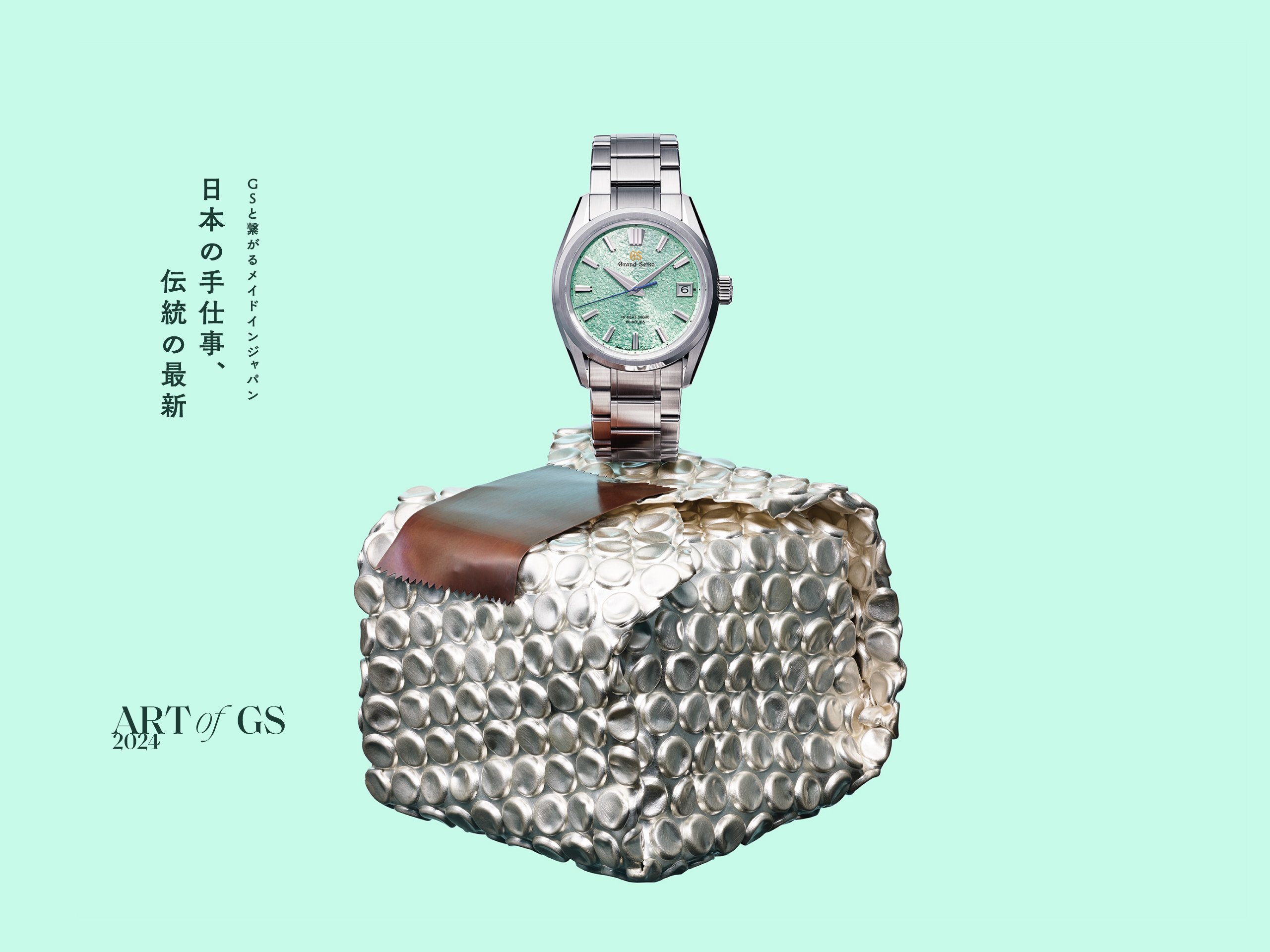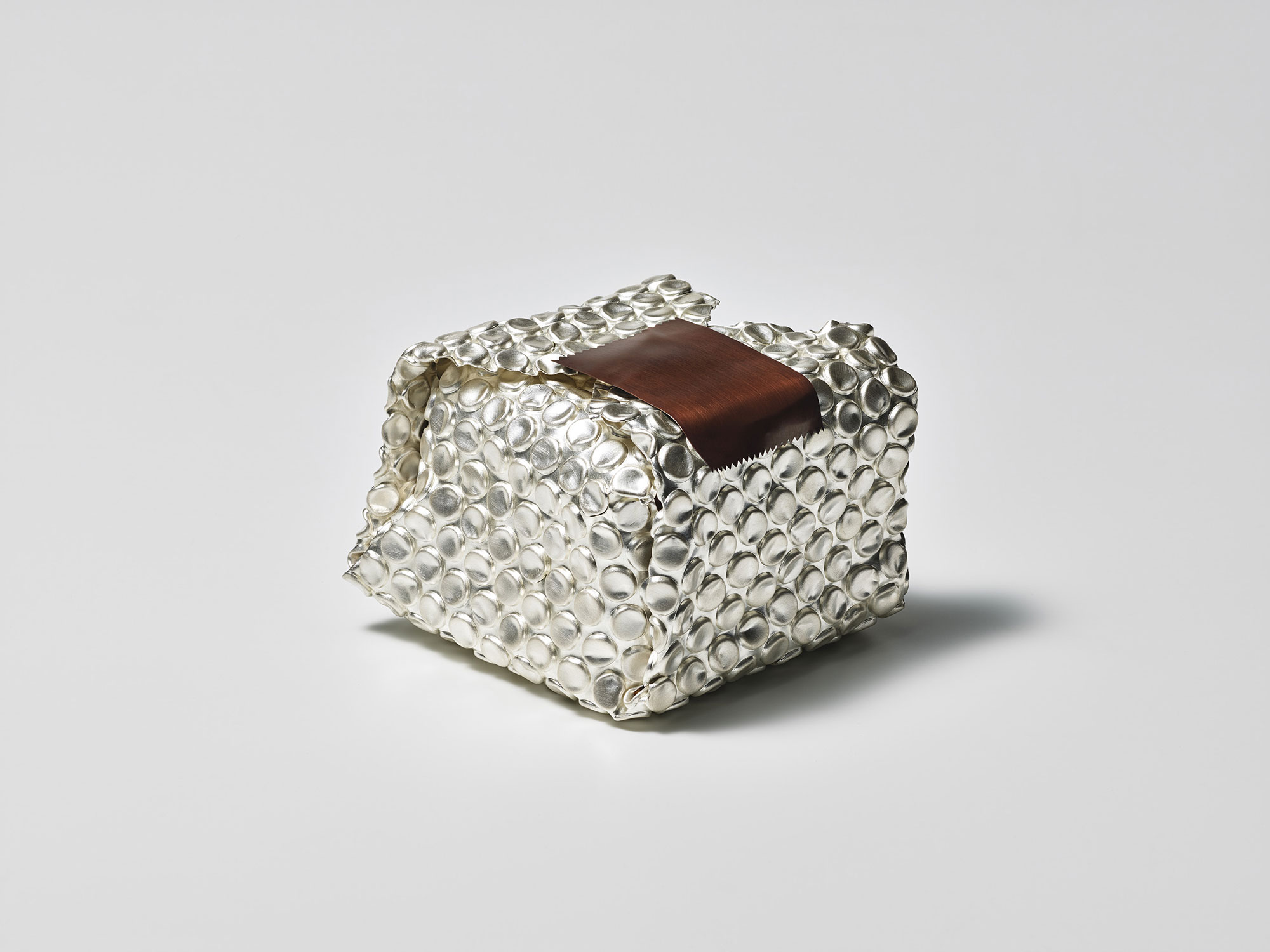
In Japan, the kettle is used as one of the tools in the tea ceremony. A common design often seen on the side of a tea kettle is referred to as “Arare,” consisting of round bumps on the sides. Generally, “Arare” is achieved through casting, but in the works of the Hasegawa family of metalworkers, each bump is traditionally hammered by hand. Seikichi Hasegawa has applied this technique to silver to represent the bubble wrap used in packaging. Folding the hammered sheet into the desired shape requires extraordinary skill. The idea of using a traditional technique passed down through generations with silver to represent disposable packaging is interesting. Coincidentally, the meticulous work poured into this packaging material seems to resonate with the delicacy of the new stamped pattern adopted on the dial of the SLGH021.

Time is an important element in creating beauty, similar to an artwork backed by long-established techniques. The Genbi Valley, designated as a Place of Scenic Beauty and Natural Monument, can be found mid-stream on the Iwai River in Iwate Prefecture, where Grand Seiko mechanical watches are manufactured. There, the river’s vivid green water flows beautifully, creating a mystical landscape with various strange rocks and dynamic waterfalls that have been shaped by nature over a long period of time.
The dial of SLGH021 represents the impressive scenery of the Genbi Valley with a new stamped pattern and a light-green color. The case and bracelet are made of Ever-Brilliant Steel, a material that boasts the highest level of corrosion resistance of any stainless steel in the world, and SLGH021 is the first watch in the Evolution 9 Collection to use it. This special metal exhibits a white shine that pairs beautifully with the dial’s vivid green color.
Photography = Naohiro Tsukada
Text = Natsuki Ando